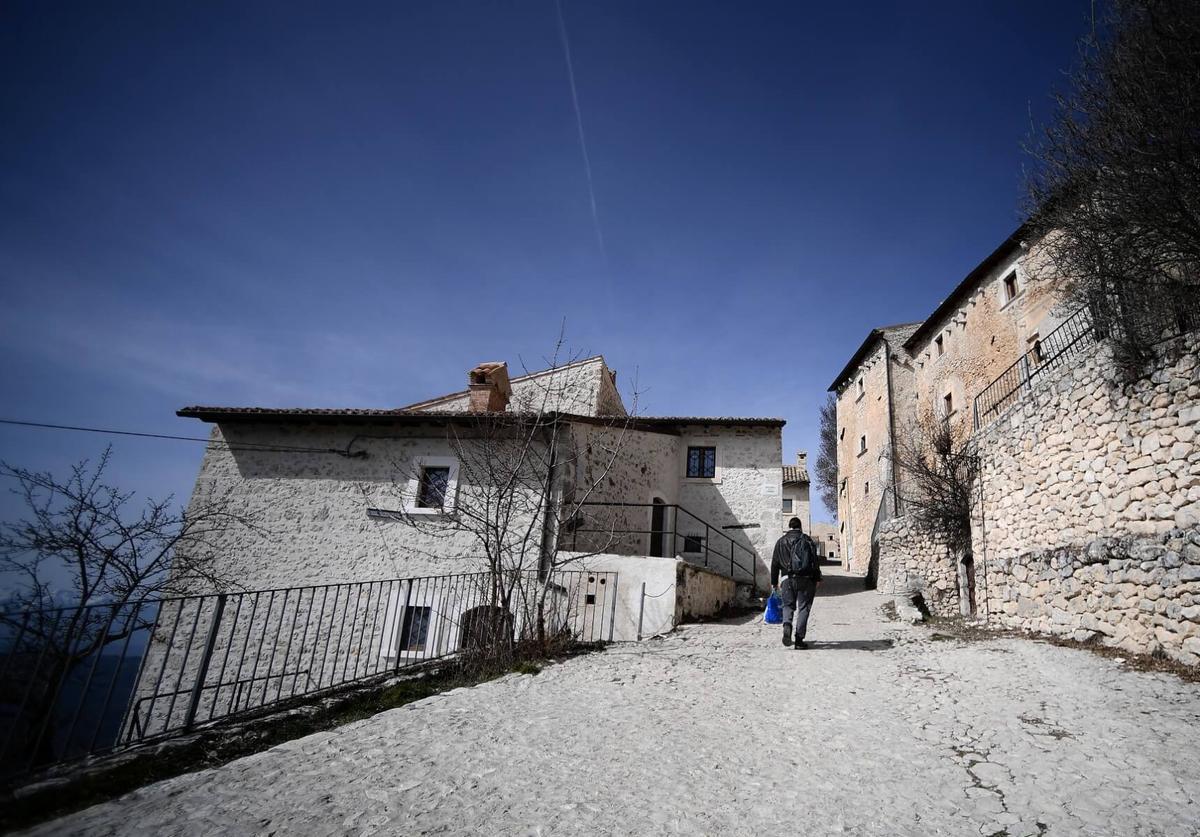If the town hall is not the owner of the abandoned dwellings, as in the case of quake-struck villages like Sambuca di Sicilia where the one-euro scheme worked well, it is very complicated.
The former owners, or their heirs, need to be tracked down to ask if they want to dispose of their crumbly homes, and most of the time it’s like looking for a needle in a haystack.
“We’ve being trying to find them since 2016, but it’s been mission impossible. There are 40 empty houses in our village and the owners have long migrated to the US or other countries, we can’t track them down and don’t even know if they’ve changed their last names in the meantime, or sold their family properties to third parties without notifying our offices,” said Lucio Fiordaliso, mayor of Patrica, a village south of Rome with barely 3,000 residents told The Local.
READ ALSO: 'We bought a one-euro home in Italy then had to give it back'
Fiordaliso says he doesn’t have the authority to just seize empty buildings and place them on the market, unless they pose a threat to village safety and are about to collapse, hurt passers-by or destroy adjacent houses.
“We’ve been able to sell just two €1 homes, and only because they fully belonged to two people whose identity was certified. Often, most old buildings are property-split, different family members own shares - like a piece of bathroom, bedroom or terrace - and without written permission from all owners nothing can be placed on the market. It just rots there," Fiordaliso said.
Multiple owners are always related, and bickering relatives who won’t agree on the sale complicates things, he says. Sometimes, just due to old family feuds, they are unwilling to sell their share as payback for past quarrels over inheritance.
Often, however, owners don’t want to place their abandoned abodes on the market over fears of having to pay back taxes on property and waste disposal of up to €2,500 per year, plus unpaid utility bills.
“Back in 2016 we made a call-out to old owners inviting them to dispose of their useless, burdensome properties by giving them away for free, and we were quite amazed just two stepped forward," Fiordaliso said.
MAP: Where in Italy can you buy homes for one euro?
“The others, at least those in Italy, were scared of coming-out as being the real owners. According to Italian law, unpaid taxes can be claimed by town halls just for the previous five years, we can’t go back further in time as they automatically expire due to a statute of limitation," the mayor said.
"Still, we tried to recover precious financial resources that would have benefitted our public coffers."
In Italy first home property taxes have been scrapped but second home taxes start at €200 per year depending on the house size, while waste disposal taxes are an average of €300 also for first homes. Multiplied by five years of unpaid taxes, that amounts to at least €2,500 original owners or their heirs owe authorities if they step forward, accepting to sell their vacant homes. Plus, they would also need to pay fines on the back taxes.
Latronico, a village in deep Basilicata, opted out of the one-euro project when in 2019 its deputy mayor Vincenzo Castellano realised it would be a complex procedure. Instead, he successfully created an online platform where empty homes on sale, both turnkey and in need of a restyle, are showcased with photos.
“We want the original owners willing to really get rid of their homes to directly interact with interested buyers, share information and meet to see the houses”, says Castellano, who has so far liaised in the sale of 50 buildings to foreigners from all over the world.
The one euro homes are very risky, adds Castellano. Often a part of the property could even be “trapped in a decades-long mortgage”, he says, owned by a bank who lent money to one share-holder to buy a portion of it and who then vanished into thin air.
“In that case, there’s no way to dispose of the building, until it crumbles to the ground”, says Castellano.
Another issue is when the land on which homes are built is split between territorial bodies. The Alpine village of Carrega Ligure in Piedmont has been trying to sell empty stone cottages, abandoned by farmer and shepherd families, in vain for over a decade.
The village is divided into several layered districts, scattered across woods that run along mountain flanks, and land jurisdiction falls within the state and the mountain park preservation authorities.
“Old owners emigrated in 1940 to who knows where, their heirs never showed up to claim and sell their dilapidated cottages. But even if they had, there would have been too many parties involved. The state wouldn’t allow us to dispose of the land where the dwellings were built on”, says Carrega’s former mayor Guido Gozzano.

Join the conversation in our comments section below. Share your own views and experience and if you have a question or suggestion for our journalists then email us at [email protected].
Please keep comments civil, constructive and on topic – and make sure to read our terms of use before getting involved.
Please log in here to leave a comment.